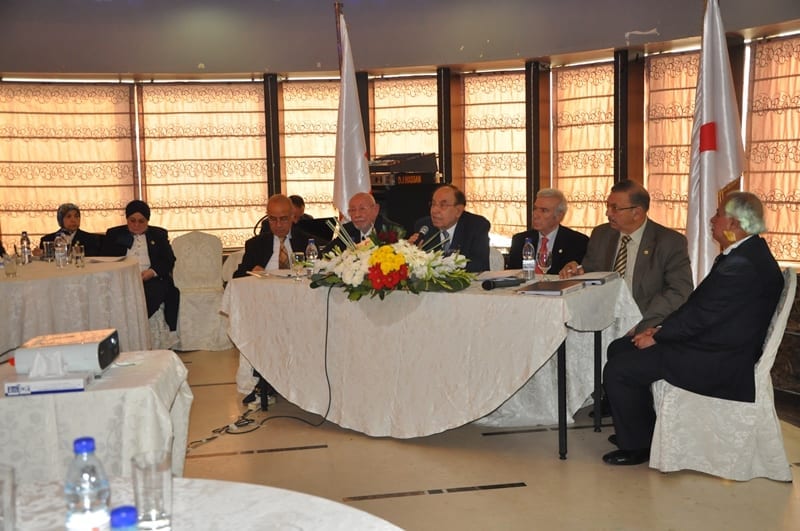By Viviane Tou’meh,SARC
In this part of the world – about 10km from Adra city, in al-Duwair area – a small camp has became a home for 2,450 people, around 500 families, after their displacement from Adra city. This camp consists of 200 small cabins built from cement and was used previously as training place for school’s students during summer holidays.
The weather was nice during our visit to this camp and many residents were outside catching some warmth from the sun.
Abu Mohammed, a father of seven children, was cooking rice with ghee, he said: “I had to cook on firewood to feed my children due to the shortage of cooking gas in this camp. It is also a good way to warm ourselves.”
Khaled al-Hussein, in his 60s, had an accident 30 years ago that means he now uses a wheelchair. He is frustrated with the situation and the plight of his fellow Syrians. “Displaced people are suffering a lot,” he says.
As the fighting and instability in Syria drags into a third year, ordinary people are bearing the burden, and with no end to the unrest in sight thousands are struggling to cope.
Um Ahmad is getting used to change, but living in the shadow of violence is taking its toll. She was displaced with her eight children from her home in Douma to Maydaa’ neighbourhood in the eastern suburbs of Douma city. 15 days later she fled to Adra city and stayed there for one year. Now she is living in this camp. Her husband died seven months ago. When we met, Um Ahmad was gathering straw and heating the water on the wood fire in order to wash herself. She says the family has lost everything, including their clothes and any chance of making an income. “My eldest son is 32 years old and he has four children, also he is jobless,” she says. “We want to go back home, we have nothing to do here.”
Austerity measures appear to be increasingly common among all of those families. But it is not just food, water or gas. The crisis has made children’s education all but impossible.
Ahmad Khalaf Abu Mohammad, 41 years old and a father of eight children, was working for the oil establishment but the fighting in Adra city forced him to leave his home and to live in this camp. “I am not worried about food or water,” he says. “I am worried about my children’s education, my oldest son has his baccalaureate this year. There are 200 students in this camp who lost their school and cannot continue their study.”
According to Ahmad Khalaf, many people lost their relatives during the evacuation process from Adra city and there is a serious need for restoring family links services.
Ammar Jaour, the response manager for the Syrian Arab Red Crescent (SARC), says positive steps to address the basic needs had been taken. After an initial assessment into the immediate needs of 1,500 people, an intervention plans for developed. Sanitary facilities was repaired and SARC teams provided families with food and nonfood items such as food parcels, hygiene kits, kitchen sets and mattresses, as well as fresh water, which has been supplied by a contractor, but is monitored by SARC volunteers. Dania, a volunteer working on the water project, says: “I come to the camp continuously to do the assessment for the works implemented by the contractor.”
While SARC is able to support the people living in this camp, many more are living in Adra Industrial city where sanitation and basic facilities are, according to one volunteer, non-existent.
[g_slider source=”media: 330,329,328″ limit=”3″ link=”lightbox”]



Discussion about this post